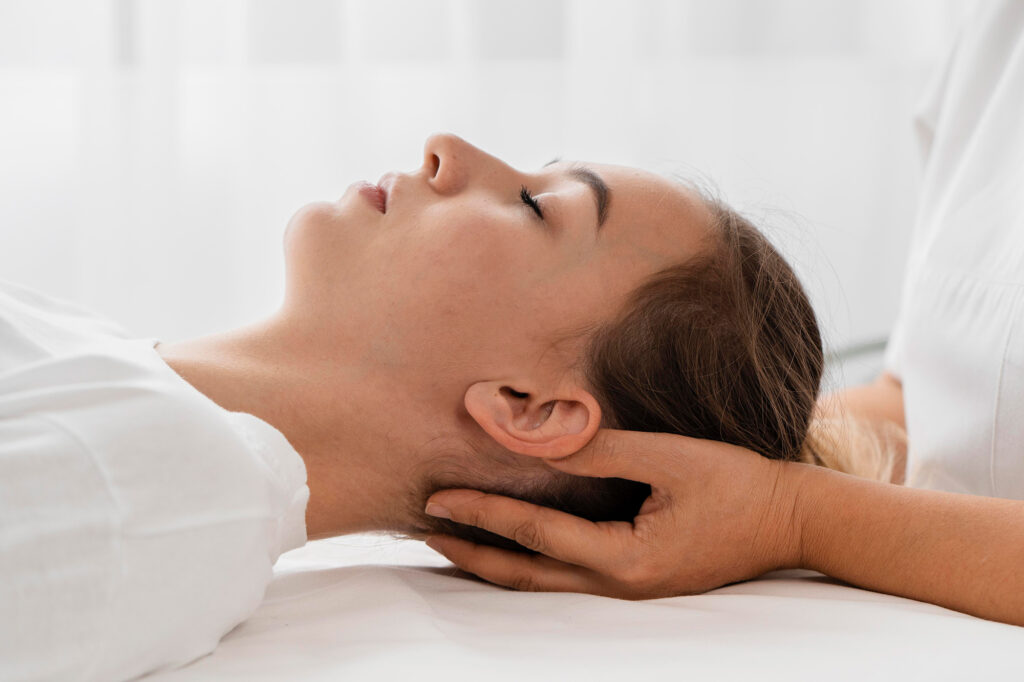Stress has become an omnipresent aspect of modern life, affecting people of all ages and backgrounds. From demanding work schedules to personal responsibilities, the sources of stress are numerous and varied. As a senior physiotherapist at Physioveda India, I have witnessed firsthand how stress can manifest physically and mentally, impacting overall well-being. Fortunately, physiotherapy offers a holistic approach to managing and reducing stress through various treatments and exercises that promote relaxation and overall health.
Understanding Stress and Its Impact
Stress is the body’s natural response to perceived threats or challenges. While a certain level of stress can be beneficial, motivating us to perform better and adapt to new situations, chronic stress can have detrimental effects on health. Prolonged stress can lead to a range of physical and mental health issues, including:
- Muscle Tension and Pain: Stress often causes muscles to tense up, leading to discomfort and pain, particularly in the neck, shoulders, and back.
- Headaches: Tension headaches are a common symptom of stress, resulting from tight muscles in the neck and scalp.
- Fatigue: Chronic stress can lead to persistent fatigue, affecting daily activities and overall quality of life.
- Sleep Disturbances: Stress can interfere with sleep patterns, leading to insomnia or poor-quality sleep.
- Mental Health Issues: Anxiety, depression, and mood swings are common psychological effects of chronic stress.

The Role of Physiotherapy in Stress Management
Physiotherapy is not just about treating injuries and physical ailments; it also plays a significant role in promoting mental and emotional well-being. Here are some ways physiotherapy can help manage and reduce stress:
1. Exercise Prescription
Regular physical activity is a well-known stress reliever. Exercise stimulates the production of endorphins, the body’s natural mood elevators. As a physiotherapist, I design personalized exercise programs tailored to each individual’s needs and fitness levels. These programs may include:
- Aerobic Exercises: Activities like walking, jogging, cycling, and swimming improve cardiovascular health and reduce stress hormones.
- Strength Training: Building muscle strength not only improves physical health but also boosts self-esteem and confidence.
- Flexibility and Balance Exercises: Yoga, Pilates, and stretching routines enhance flexibility, reduce muscle tension, and promote relaxation.
2. Manual Therapy
Manual therapy involves hands-on techniques to manipulate muscles, joints, and soft tissues. It can be highly effective in relieving stress-related physical symptoms. Techniques include:
- Massage Therapy: Therapeutic massage helps release muscle tension, improve circulation, and promote relaxation. It can significantly reduce stress and anxiety levels.
- Myofascial Release: This technique targets the fascia, the connective tissue surrounding muscles. By applying gentle pressure, myofascial release can alleviate pain and reduce stress.
- Joint Mobilization: Gentle movements of the joints can improve mobility, reduce stiffness, and provide relief from stress-induced pain.
3. Breathing Exercises
Proper breathing techniques are essential for relaxation and stress management. Physiotherapists can teach patients how to use diaphragmatic breathing and other techniques to calm the mind and body. Controlled breathing exercises help lower heart rate, reduce blood pressure, and decrease levels of stress hormones.
4. Mind-Body Techniques
Physiotherapy often incorporates mind-body techniques that promote overall well-being. These include:
- Yoga: Combining physical postures, breathing exercises, and meditation, yoga is an excellent way to reduce stress and improve flexibility and strength.
- Tai Chi: This ancient Chinese practice involves slow, deliberate movements and deep breathing. Tai Chi enhances physical balance and mental tranquility.
- Mindfulness Meditation: Practicing mindfulness helps individuals stay present and focused, reducing the impact of stress on the mind and body.
5. Education and Lifestyle Advice
Education is a crucial component of physiotherapy. By understanding the sources and effects of stress, individuals can take proactive steps to manage it. Physiotherapists provide guidance on:
- Ergonomics: Proper posture and workspace setup can prevent physical strain and reduce stress.
- Time Management: Effective time management strategies can help individuals balance work, family, and personal time, reducing stress.
- Healthy Lifestyle Choices: Encouraging a balanced diet, adequate sleep, and regular physical activity contributes to overall well-being and stress reduction.
6. Hydrotherapy
Water-based exercises and treatments, known as hydrotherapy, can be incredibly soothing and beneficial for stress management. The buoyancy of water supports the body, reducing the strain on muscles and joints. Warm water can help relax muscles and improve circulation, while the rhythmic movements of water exercises promote a sense of calm.
7. Acupuncture and Dry Needling
Some physiotherapists are trained in acupuncture and dry needling techniques. These methods involve inserting thin needles into specific points on the body to alleviate pain and stress. Acupuncture is known to stimulate the release of endorphins and other natural pain-relieving chemicals, promoting relaxation and well-being.
Conclusion
Stress is an inevitable part of life, but it doesn’t have to dominate our health and happiness. Physiotherapy offers a comprehensive approach to managing stress by addressing both the physical and mental aspects of well-being. Through personalized exercise programs, manual therapy, breathing exercises, mind-body techniques, education, and lifestyle advice, physiotherapy empowers individuals to take control of their stress and lead healthier, more balanced lives.
At Physioveda India, we are committed to helping our patients achieve optimal health and well-being. If you’re struggling with stress, consider consulting with a physiotherapist to explore the various treatments and exercises that can make a positive difference in your life. Remember, managing stress is not just about reducing its impact but also about enhancing your overall quality of life.


